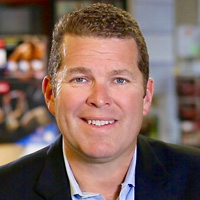I’ll never forget the night I almost quit Navy SEAL training.
It was the third night of Hell Week, and we had been awake for nearly 72 hours straight. My class had dwindled from 34 to 18 (17 enlisted and 1 officer—me). The instructors pulled me away from the class and surrounded me as the lead instructor posed a question that stopped me in my tracks:
“Sir, why do you think so many of your classmates are quitting?”
My exhausted brain searched in vain for a response. He then stated matter-of-factly, “I’ll tell you why, sir.” He paused for effect, “They are quitting because of you.”
I remember looking and acting dumbfounded as I searched for a rebuttal. He then followed up with, “That’s right, sir, they are quitting because you are a bad leader. I want you to be honest with yourself and with us—about five SEAL instructors—and really think about this next question: ‘How are you going to lead a SEAL platoon if you can’t even lead your BUD/S class through Hell Week?’” He added another long pause for me to contemplate his hypothetical question and, for good measure, asked a follow-up:
“Sir, you don’t want to be responsible for getting SEALs killed, do you? How would that make you feel?”
He had me pondering his negative hypothetical questions, almost convincing me that his twisted logic was accurate and that I should quit to save myself from the future disgrace of “getting SEALs killed because of my poor leadership skills.” I distinctly remember telling myself:
“Alden, you have time between now and when you become a SEAL platoon commander to improve your leadership—keep going—don’t quit.”
I walked away when they asked me to quit, and I could hear them saying, “Damn, I thought we had him!”
Continual Growth = Continual Change
That particular Hell Week conversation has stayed with me throughout my life as a reminder that I can always improve my leadership skills—the art of leadership is a never-ending journey of continual growth. And when I write “continual growth” please equate that with "continual change".
I have made lots of changes in my leadership style from Hell Week to present day, and will I suspect I will make more changes through the rest of my life time.
As people gain more access to knowledge and tools, the role of a leader shifts. It’s no longer about just giving direction—it’s about inspiring others to embrace and drive change within themselves, connect that change to the outcomes required which in turn propel the team forward.
Change Is Constant In UNSTOPPABLE Leadership
When I use the term “Unstoppable Leadership”, I’m really talking about the power to inspire ourselves and others to embrace change. Change is the only constant in our leadership journeys, but let’s face it—we aren’t naturally open to it – especially as we get older and more set in our ways.
In this post, I’m going to offer three actions that can help you develop your own Unstoppable Leadership capabilities. (*Spoiler Alert: I believe everyone can learn these principles of Unstoppable Leadership!) Practice these actions and you will be on your way to turning your team into a force-multiplying powerhouse—what I like to call an Unstoppable Team.
3 UNSTOPPABLE Leadership Actions
The night I almost quit SEAL training sticks with me—not just for the physical exhaustion but for the doubts that surfaced, testing my resolve to lead.
That night taught me that leadership isn’t about having all the answers; it’s about inspiring others to keep going, even when things get tough.
Leaders today are up against the same pressures to adapt and thrive, with the pace of change never letting up. The key to success lies in adopting an approach that motivates and connects with the values of your teammates.
The Strategies That Have Made All The Difference
1. Answer the “Why”: Just like I held onto my vision of leading a SEAL platoon, you need to craft a vision that your team can rally behind. Answer the question “why does your team exist?” Today’s generational workforce is much more purpose driven. You must the answer the “why” of why they should commit their time, talent and energy to the team’s objective. When people see where they’re headed and why it matters, they’re more likely to push through challenges.
2. Define the “What”: Be specific on “what” the team’s objective is, and then create metrics to measure what matters. So many team leaders assume teammates know the “what” and think the measurements are obvious. Assume nothing. Measuring metrics matters for it shows progress and progress is a critical source of fuel for inspiring a team to achieve something it has never achieve before.
3. Inspire the “How”: A team is created when one person cannot accomplish a task. The true power of team comes from everyone owning the results of the team’s collective efforts. After you have connected them with the “Why” and the “What”, inspire them with ideas on the “how” but do not tell them “how” it must get accomplished – let them own the “how” process. If there are specific constraints then tell them, but be open to the team’s suggestions on “how” to achieve the team objectives. This is a critical phase of leadership: giving the team the room to execute.
The moment you start telling others how to do something is the moment they stop owning their actions.
Leadership is a journey, not a destination. When you embrace these actions, you will find yourself the first one to embrace change. You will discover from your teammates new ways to do something. When this happens you’re not just leading—you’re transforming, and your teammates will be too.
In a world where change is the only constant and the rate of change is accelerating, how you lead must change as well.
Get In Touch
Are you interested in me working with your organization? Please fill out the form below and someone from my team will be in touch soon!
Remember, We Are All Born to Be Unstoppable
It is our Choice to Be Unstoppable. Check out my Books and our Resources and Courses to develop the mindset and actions required to thrive and accomplish more than you originally thought possible. And if you have any questions about motivational speaking, just drop me a line!





